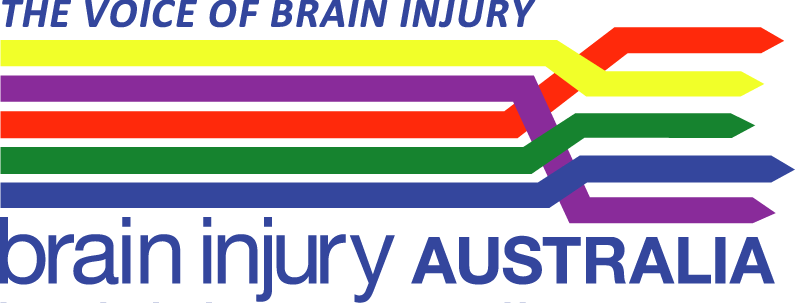- TOOLS FOR WORK
- Introduction
- T1 A person may have an ABI
- T2 Conversation tips
- T3 Looking for indicators of ABI
- T4 Strategies for
cognitive changes - T5 Case managers issues checklist
- T6 Sources of information
- T7 Individual program plan
- T8A Tips for
setting goals - T8B SMAARTER Goals
- T9 Managing and supervising staff
- T10 The disillusionment process
- T11 Preventing stress
- T12 Working with Families: Principles
- T13 Support workers:
WHS & Participant Risk - T14 Professional boundaries
- T15 Principles & Standards
- T16 Essential thriving guide
Tool 3: Looking for indicators of ABI
If you think a person may have an ABI you may need to ask questions to help understand the person, their ABI and their needs.
Asking these questions can be useful to get a sense of the client's cognitive status, and information about prior accidents, etc.
You may need to ask these questions of a family member or friend. A person with cognitive deficits may not be able to give you an accurate answer to these questions.
The following questions are not a diagnostic tool. They are intended only to identify the possibility of an ABI.
Considering the possibility of an ABI
Cognitive status
1. Does he/she have problems with day-to-day memory?
2. Does he/she have problems with attention/concentration (e.g.. while reading a book, watching TV or watching a movie)?
3. Does he/she make a mess of simple tasks they could previously complete?
4. Does he/she get easily confused when things are explained?
5. Does he/she get stuck on a point and become unable to think or talk about anything else?
6. Does she/he find it hard to change their opinions or their routine, and become easily upset by small changes?
7. Does he/she generate unrealistic plans?
8. Does he/she act before they think?
A prior accident?
1. Have you ever had an injury to your head because of a car accident, fall, fight, blow to the head, or gunshot? If so, when did this happen?
2. Did you get knocked out or lose consciousness? If so how long did this last?
3. Did you experience confusion after the injury? Is there a gap in your memory for events that happened around the time of the injury?
4. Did you go to hospital?
5. Did you receive treatment?
6. Have you noticed changes in your emotional functioning since the injury? If so what changes have you noticed?
A prior stroke?
1. Have you ever had a stroke?
2. Did you lose consciousness? If so how long did this last?
3. Did you experience confusion after the stroke? Is there a gap in your memory for events that happened around the time of the injury?
4. Did you go to hospital?
5. Did you receive treatment?
6. Have you noticed changes in your emotional functioning since the stroke? If so what changes have you noticed?
Alcohol related brain injury?
1. Do you drink alcohol? If, so how much?
2. Cognitive status questions as above
b) When you know the person has an ABI from trauma, stroke, hypoxia or anoxia
1. Date and type of incident
2. Did you lose consciousness? If so how long did this last?
3. How long did you have post-traumatic amnesia (PTA)?
4. Did you go to hospital? For how long?
5. Did you receive treatment? What kind?
3. Rehabilitation history
• Acute
• Post-acute rehabilitation/community re-settlement
• Social rehabilitation
4. What types of impairments?
• Cognitive
• Communication/language
• Physical/sensory
• Emotional/behavioural/personality
5. What level of functioning?
• Self-care
• Living skills
• Work/study
• Relationship skills
• Behavioural problems (e.g. aggression, sexuality, disinhibition)
6. What level of functioning before the injury?
• Self-care
• Living skills
• Work/study
• Relationship skills
• Behavioural problems (e.g. aggression, sexuality, disinhibition)
7. Current social situation
• Accommodation
• Finance
• Social supports
• Current support
8. Compensation status
9. Other agencies involved

